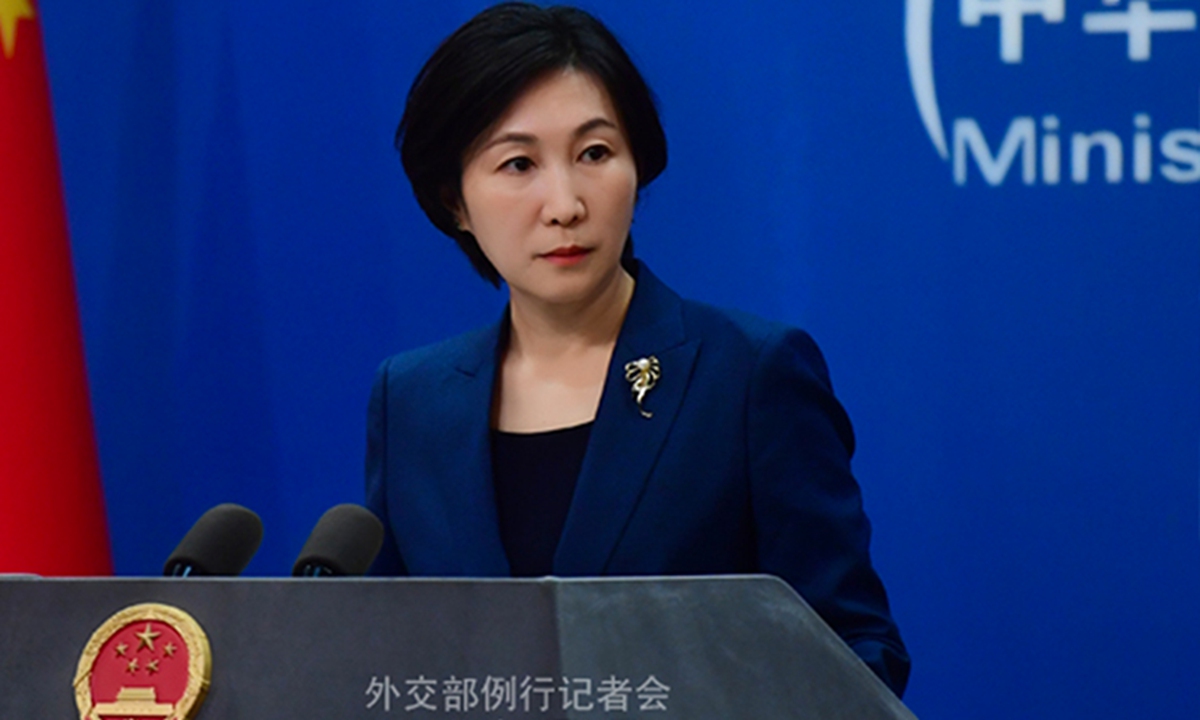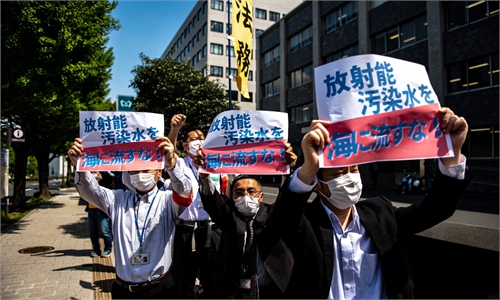Safety hazards inherent in TEPCO's decommissioning of nuclear facilities, management of radioactive waste: Chinese FM

Foreign Ministry Spokesperson Mao Ning Photo: Ministry of Foreign Affairs
The Chinese Foreign Ministry on Wednesday said Tokyo Electric Power Company (TEPCO)'s decommissioning of the nuclear facilities and the management of radioactive waste at its Fukushima nuclear site are fraught with safety hazards, after Japan's nuclear regulator expressed discontent over TEPCO's delay in considering emergency responses to the possible collapse of the reactor pressure vessel.
As the reinforced concrete foundation supporting the reactor pressure vessel of the crippled Fukushima Daiichi nuclear power plant's No. 1 unit was confirmed to be badly damaged, Japan's Nuclear Regulation Authority Chairman Shinsuke Yamanaka, at a press conference on Tuesday, was critical of TEPCO which was slow in considering emergency measures to the potential collapse of a pressure vessel.
"When the damage to the reinforced concrete foundation was discovered last year, TEPCO should have made responses,'' Yamanaka said.
Mao Ning, spokesperson for the Chinese Foreign Ministry, said on Wednesday that the Fukushima nuclear accident, rated the highest level globally, caused the leakage of large amounts of radioactive substances, which can have an enormous impact on the marine environment and human health.
Japan has the obligation to properly handle the decommissioning of the nuclear facilities and the disposal of the nuclear-contaminated water in the wake of the accident to ensure absolute safety, Mao stressed.
According to Mao, there are worrying uncertainties and safety hazards with regard to the decommissioning of the nuclear facilities and the management of radioactive waste.
"It has been found that the base of the reactor pressure vessel of Unit 1 was severely damaged, creating risks that the pressure vessel could collapse. If mishandled or not treated in time, the problem could worsen the environmental impact and add to the amount of radionuclides in the nuclear-contaminated water," Mao warned.
This further proves that the international community's concern over Japan's ocean discharge plan is well-founded and the questioning of TEPCO's professionalism in handling relevant issues is fully justified, she added.
With the intended spring or summer dumping of the nuclear-contaminated water fast-approaching, on the same day, South Korean civic groups held another protest rally, urging the Japanese government to withdraw its water dumping decision and requesting the South Korean government to defend the interests of its fishery workers who will be directly affected by the plan.
Mao urged Japan to take the international community's concern seriously, step up to its due international obligations, and properly handle issues related to the decommissioning of the Fukushima nuclear power plant. In particular, it needs to make sure that the nuclear-contaminated water is disposed of in a science-based, open, transparent and safe manner, for example, by fully studying other options than ocean discharge, and subjecting itself to stringent international oversight.
Japan should not start dumping the nuclear-contaminated water into the ocean unless all stakeholders and relevant international agencies could confirm that the discharge plan is safe, Mao reiterated.
Chang Yen-chiang, director of the Yellow Sea and Bohai Sea Research Institute at Dalian Maritime University, told the Global Times that an application for an advisory opinion should be submitted to the International Court of Justice through another international organization, so the court can judge whether Japan's action violates any international law or whether it is authorized by any international treaty.
China can submit the application either to the International Maritime Organization, UN General Assembly, the WHO or the UN Office of the High Commissioner for Human Rights as dumping of nuclear-contaminated water concerns the marine environment, human health and human's right to life across the world, Chang said.

